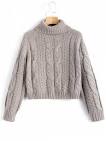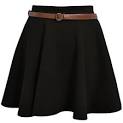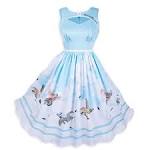Урок з англійської мови для 4 класу на тему:"День Вчителя"
Тернопільська спеціалізована школа І-ІІІ ступенів №29
з поглибленим вивченням іноземних мов
Конспект уроку з англійської мови
для 4 класу на тему:
«День Вчителя»
Підготувала та провела
вчитель англійської мови
Винничук Лідія Миколаївна
Тернопіль 2023

The theme:
The objectives:
- practical: to present and practice vocabulary to talk about holidays, to refind reading, listening, writing and speaking skills on familiar grammar and vocabulary
- developing: to maximize pupils’ potential by providing the appropriate level of support and challenge, develop imagination and build confidence;
- cultural: to broaden pupils’ outlook and promote interest in the role of the teacher in the world.
Resources used:
- Pupil’s Book and Activity Book “Fly High 4”;
- a computer and TV set;
- Power Point Presentation;
- classroom activities flashcards;
- two harmonicas;
- video “I love You”;
- self-sticking notes;
- pictures of Ancient Greece, wax, stick, wrestling, strict, hit;
- colorful chalks.
PROCEDURE
- Greeting.

T: Good morning children! Glad to see you.
S: Good morning teacher! Glad to see you too.
T: How are you today?
S: I’m good/I’m great/I’m wonderful/I’m tired/I’m hungry/I’m so so/ I’m sleepy.
T: Today, I want to start our lesson by wishing something really nice. Throw a ball and tell some inspiring words.
S-s:
- smile a lot;
- believe in yourself;
- enjoy the lesson;
- do your best;
- just be happy;
- stay positive;
- nerve give up;
- the sky is your limit;
- don’t stress;
- create your own sunshine;
- you are more powerful than you think;
- make today amazing;
- focus on the good;
- be the reason someone smiles today;
- always move ahead;
- love yourself;
- keep learning.
All together: We are the best
T: Great, my besties, sit down.
- Phonic drills.
T: We usually do lots of activities during the lesson. You like coping with some tasks, but you don’t enjoy dealing with the other. Instead of Yes say the phrase with the long sound [u:] – cool school and instead of No, use the phrase with the long sound [ɔː] – boring loring. Repeat, [u:].
S-s: [u:]
T: If your answer is yes give me a thumbs-up and say COOL SCHOOL. Repeat COOL SCHOOL.
S-s: COOL SCHOOL.
T: [ɔː]. Repeat [ɔː].
S-s: [ɔː]
T: If your answer is no, give me a thumbs-down and say BORING LORING. Repeat BORING LORING.
S-s: BORING LORING.
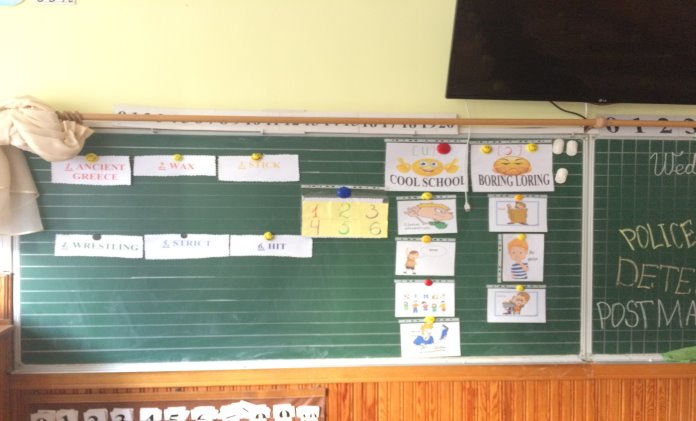
Questions:
- Do you like working hard?
- Are you happy when you are reading the text?
- Do you enjoy speaking a lot?
- Is it exciting to sing the songs?
- Is it easy to be quiet during the lesson?
- Is it interesting to write answers to the questions?
- Does it take a lot of effort to listen to the teacher attentively?
T: We will return to your answers at the end of the lesson and maybe see some changes.
III. Vocabulary practice
T: I suppose you are interested what is the topic of our lesson? We will find out it after checking your homework. For today you had to learn some new words. Come here please, Marharyta and Danylo. Listen to the definitions of your classmates and whistle when you guess what profession it is.
The word-bank:
- A police officer –he catches the thieves.
- A firefighter – he feeds fire.
- A nurse – she helps a doctor in the hospital.
- A detective – she can find the missing animals or people.
- A zookeeper – she looks after the animals in the zoo.
- A postman – he carries letters, postcards and parcels to your home.
- A photographer – she takes photos.
- A reporter – he writes stories for a newspaper.
T: So, one picture is left. Who is she?
S1: She is a teacher.
T: Yes, today the topic of our lesson is Teacher’s day. By the end of the lesson you will be able to:
- use the knowledge of the vocabulary studied on the topic;
- distinguish between right and false information cording to the read text;
- allocate basic information from the stream of speech;
- ask questions about personal information;
- and you will get the answer to the question “What does the true teacher do during every lesson?”
So, what does the true teacher do during every lesson? You get the answer to this question after coping with some tasks.
IV. Reading
* Pre-reading
T: So, today’s hero of the occasion is a teacher. Teachers are very creative, kind, friendly and sometimes strict. But have they been always the same? We are going to read the text about the teachers and schools, there will be some unknown words: Ancient Greece, wax, stick, wrestling, strict and hit. Repeat, Ancient Greece/ wax/ stick/ wrestling/ strict/ hit.
S-s: Ancient Greece/ wax/ stick/ wrestling/ strict/ hit
T: Work in groups. Discuss and match the word with the picture. You have 1 minute. In which picture is there Ancient Greece, 1, 2, 3, 4, 5 or 6?
S1:….
T: Yes, it’s quiet right. This is Ancient Greece. The next word is wax. Wax is picture #...
S2:….
T: Great job, then we have a stick. What number is the stick?
S3:…..
T: What about wrestling?
S4: …
T: Any ideas about strict?
S5:…
T: And it is obvious, that number ….goes to….
S-s: Hit
While-reading
T: Now, you are ready to read. Come here with your PBs Stas and Nastia. Stas, you are going to read these three parts and Nastia, you are going to read these three part. All the rest, work in pairs. I give you the parts of the text, use the glue to stick them in the correct order on the scale.
|
1 |
What is your teacher called? Is your teacher a man or a woman? How many teachers are there in your school? |
|
2 |
In Ancient Greece the teachers were all men. There weren’t any women teachers. There were grammar teachers, music teachers and PE teachers. |
|
3 |
They didn’t have blackboards or books. They wrote lessons for the children on wood. There was wax on the wood. They didn’t have pens, they had sticks. They taught reading, writing, thinking and music. In the afternoons the PE teachers taught wrestling! |
|
4 |
Much later, in the eighteenth century, there were women and men teachers. The teachers were very strict then and they sometimes hit the children with sticks. |
|
5 |
In the nineteenth century the famous English author Charles Dickens wrote about a very strict teacher in his book Hard Times. The teacher’s name was Mr Gradgrind. He didn’t like children thinking and having ideas. He said they must only learn facts. Teachers wrote on blackboards at the front of the class. |
|
6 |
Today there are books, pens and computers and games in our schools. Men and women can be teachers. In their classrooms they sometimes have blackboards like in the 1800s but now they have whiteboards as well. Our teachers are sometimes strict but they are kind too and they like children thinking and having lots of ideas. |
T: Thank you, Stas and Nastia, your reading was almost perfect, sit down please. Now, let’s check your task. Max, start reading.
S1: What is your teacher called? Is your teacher a man or a woman? How many teachers are there in your school?
T: Continue please, Masha.
S2: In Ancient Greece the teachers were all men. There weren’t any women teachers. There were grammar teachers, music teachers and PE teachers.
T: Methew, the next please.
S3: They didn’t have blackboards or books. They wrote lessons for the children on
wood. There was wax on the wood. They didn’t have pens, they had sticks.
They taught reading, writing, thinking and music. In the afternoons the PE
teachers taught wrestling!
T: Part number four, Marharyta.
S4: Much later, in the eighteenth century, there were women and men teachers. The teachers were very strict then and they sometimes hit the children with sticks.
T: Danylo, then we have…
S5: In the nineteenth century the famous English author Charles Dickens wrote about a very strict teacher in his book Hard Times. The teacher’s name was Mr Gradgrind. He didn’t like children thinking and having ideas. He said they must only learn facts. Teachers wrote on blackboards at the front of the class.
T: Olenka, the last one.
S6: Today there are books, pens and computers and games in our schools. Men and women can be teachers. In their classrooms they sometimes have blackboards like in the 1800s but now they have whiteboards as well. Our teachers are sometimes strict but they are kind too and they like children thinking and having lots of ideas.
Post-reading
T: Well done. Now, I want to check your understanding of the text. Stand up, please. Listen to the sentence. Jump if it’s true and touch the floor if it’s false.

- There were men and women teachers in Ancient Greece. (False)
- In Ancient Greece there were grammar teachers, PE teachers and English teachers. (False)
- In the 18th century teachers sometimes hit the children with sticks. (True)
- Charles Dickens was a famous English teacher. (False)
- There are books, pens, computers and games in our schools today. (True)
- Teachers like children thinking and having lots of ideas. (True)
T: It was really great. Sit down, please. Now, turn our text. Read the phrase.
S1: …
T: Yes, it’s the first part of our answer to the question: “What does the true teacher do during every lesson?”. Olenka, read.
S: takes a hand.
T: Yes, a teacher takes a hand...
V. Listening
Pre-listening
T: So, the teachers can be strict, but they are always friendly and like their pupils. The teachers like talking with children and are always eager to answer all your questions. How do you think, do teachers have their favourite food?
S1: Yes, they do.
T: Do they want to travel?
S2: Yes, they do.
T: Have they got pets?
S3: Yes, they have.
T: Do they like sport?
S4: Yes, they do.
T: Have they got favourite clothes?
S5: Yes, they have.
T: So, they are ordinary people with their likes and dislikes. Look, who’s this?

S6: This is a boy.
T: What’s his name?
S7: His name is Toby.
T: Look at the flag. How do you think, who is your favourite teacher?

S8: English teacher.
While-listening
T: Look at ex. 2 at page 119. You are going to listen to Toby talking to his teacher. Listen and circle the correct answer in each sentence. You have 1 minute to look though the task. Are you ready to listen?
S-s: Yes
Script
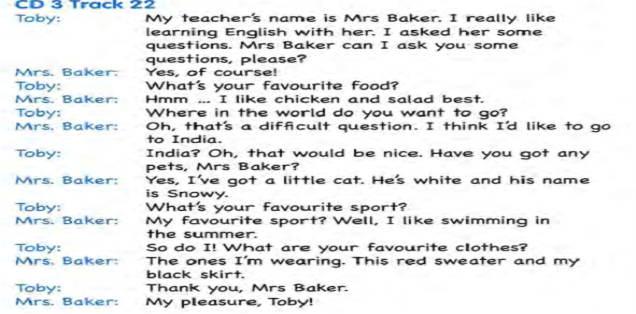
- Post-listening

T: Now, let’s check your answers. Methew, number 1.
S1: Mrs Baker teaches English.
T: Thank you, Methew. Nellia, 2
S2: Her favourite food is chicken and salad.
T: It’s quite right. Vasia, 3
S3: She would like to go to India.
T: Yes, great job. Sasha, 4
S4: She’s got a white cat.
T: Super. Next, Nastia
S5: Her favoutire sport is swimming.
T: Exellent, and the last one, Masha
S6: Her favourite clothes are red sweater and black skirt.
T: Well done, now, you can see the second part of our answer: “What does the true teacher do during every lesson?”. Max, read please.
S7: opens a mind and
T: So, a teacher takes a hand, opens a mind and...You’ll find out the ending after coping with the last, but very interesting task.
VI. Writing and speaking.
- Pre-writing and speaking
T: Now, we and Toby know a lot about his English teacher, Mrs Baker, but what do you know about me? I propose you to play a game. Look at ex. 3. Stas, read the rubric and the questions in the chart aloud.
S1: 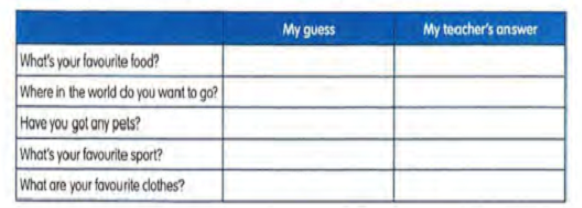
- Writing
T: Write your guesses about me in each column. To make your task easier, you can choose between these options.
|
1. |
Pizza with tomato juice |
Spaghetti with salad |
Chicken soup |
|
2. |
New Zealand |
Turkey |
Great Britain |
|
3. |
Yes, I have. It’s a hamster. |
Yes, I have. It’s a parrot. |
No, I haven’t. |
|
4. |
Tennis |
Football |
Skiing |
|
5. |
Sweater and jeans |
Shirt and skirt |
Dress |
- Speaking and writing
T: Now, ask me the questions aloud, I’ll answer the questions and you’ll write my answers.
S1: What’s your favourite food?
T: My favoutire food is chicken soup. Raise your hands who has the same answers. Question 2.
S2: Where in the world do you want to go?
T: I want to visit New Zealand. Stand up whose answer is New Zealand. Question 3.
S3: Have you got any pet?
T: No, I haven’t. Clap your hands who has the same answer. Question 4.
S4: What’s your favourite sport?
T: I’m into football. Stomp your feet if your answer is football. Question 5.
S5:What are your favourite clothes?
T: I like sweaters and jeans. Jump if your answer is correct. Sit down, I gave some of you for your correct answers our final phrase, but your task is to put all the letters in the correct order. Come here please. All the rest help your classmates. So, what do we have?
S6: touches a heart.
T: So, now we have the full answer to the questions “What does the true teacher do during every lesson?”. Max, read aloud.
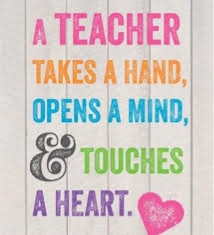
S7: A teacher takes a hand, opens a mind and touches a heart.
T: Thank you very muck for helping me to understand what I must do every lessen. You are clever, kind, friendly and simply the best. I love you very much. Do you love me?
S-s: Yes.
T: Let’s sing our song.
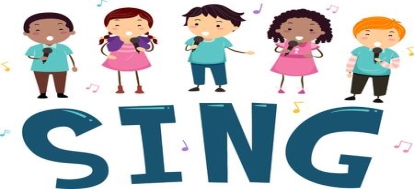
I love you
Your button nose
Your eyes, your ears
Your knees and toes
I love you
Up to the sky
Past the moon
And stars so high
If you feel alone and scared
Always know that I’ll be there
Just like one and one make two
You love me and I love you
I love you in every way
All you do and all you say
My love for you
Will always be deeper than the
Deep blue sea
Even if you’re sad or blue
It’s ok ‘cause
I love you
Just like one and one make two
You love me and I love you
VII. Homework
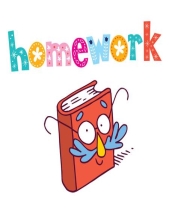
T: It’s almost the end of the lesson. Open your day books. Write down your home work for Thursday PB p. 118. Read the text once again.
VIII. Summing up
T: Although our lesson is almost over today we are full of positive emotions, useful experience and thorough knowledge. At the beginning of the lesson you’ve told me what you like and don’t like to do during our English classes. Let’s sum up. Answer Cool School or Boring Loring.
- Did you work hard?
- Were you quiet?
- Did you listen to me?
- Did you sing the song today?
- Did your read the text?
- Did you speak a lot?
- Did you write the answers to the questions?
IX. Evaluation
T: You were very active today. Your marks are….

X. Goodbye
T: The lesson is over. Stand up! Stand still.
Ps+T: Now is the time
For merry play,
No more English
For today
T: Thank you for your attention! Have a nice day! Goodbye.



про публікацію авторської розробки
Додати розробку













